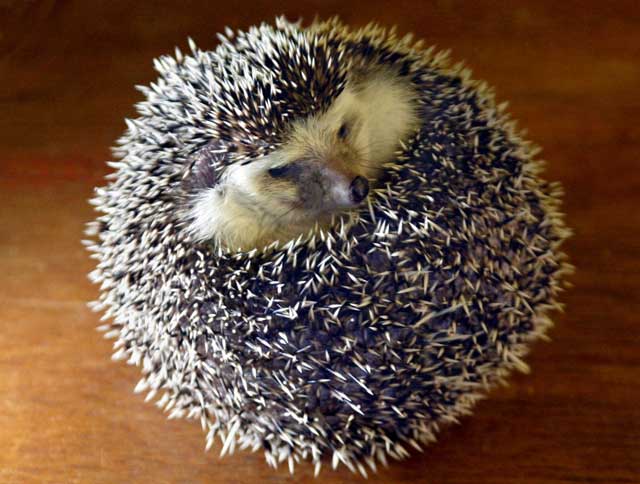Pet of the week: The African pygmy hedgehog

Your support helps us to tell the story
From reproductive rights to climate change to Big Tech, The Independent is on the ground when the story is developing. Whether it's investigating the financials of Elon Musk's pro-Trump PAC or producing our latest documentary, 'The A Word', which shines a light on the American women fighting for reproductive rights, we know how important it is to parse out the facts from the messaging.
At such a critical moment in US history, we need reporters on the ground. Your donation allows us to keep sending journalists to speak to both sides of the story.
The Independent is trusted by Americans across the entire political spectrum. And unlike many other quality news outlets, we choose not to lock Americans out of our reporting and analysis with paywalls. We believe quality journalism should be available to everyone, paid for by those who can afford it.
Your support makes all the difference.Looks like a prickly customer...
After the pygmy goat, the micro pig and the dwarf rabbit, you might think that the world is quite well catered-for in the shrunken pet department. But think again. The burgeoning popularity of the dwarf hedgehog is something that we could no longer ignore.
Is it entirely natural?
Yes, the African pygmy hedgehog is a living, breathing denizen of north-west Africa, though the name is used as a catch-all for all small, domesticated hedgies. In his natural habitat, he scuttles around looking for worms, millipedes and such like. As such he is an insectivore, and his diet over here would consist largely of dried worms which are readily available in pet stores.
Where do hedgehogs come from?
They are not related to porcupines (which are rodents, would you believe), but they are more like moles and shrews.
Sounds like a prickly customer?
Yes, but the spikes go up only as a defence mechanism, whereby he curls up into a little, spikey ball to make himself less appetising to potential diners.
Where is he happiest?
In captivity, hedgehogs will live for three to six years, and they will need plenty of space to roam, bearing in mind their instincts in the wild drive them to cover many miles a day foraging for wriggly food. So if you can give them run of the downstairs in the house, and they are not going to get stuck in awkward places, then do so. But they will need a reasonably large cage (at least 5ft square) to call their own with lots of points of interest. Make sure it has sensibly fenced off climbing areas, as hedgies are good at climbing up, but their poor eyesight means that coming down will lead them into all sorts of problems. They also need shredded newspaper for nesting and a running wheel to burn off all those carbs.
What does he eat?
Diet is very important – mealworms and dried crickets are good, but these need to be supplemented with fruit and veg. They can even have dog food, as long as their diet has plenty of variation. And never give them milk, as it is hard for them to digest.
Do they get on with other animals?
It's wholly inadvisable to try and get your hedgehog to make friends with your dog or cat, as it could lead to a permanent state of distress. There are clips on the internet of hedgies "playing" with other animals, but this is exceptional. Once used to human handling, they don't mind being picked up, but don't do it all the time as you will get in the way of the hedgie's determination to rootle around.
Who would own one?
Anyone who doesn't mind irritating little pricks...
How do I get hold of one?
Hoglets (baby hedgies) cost from around £120, but you must factor in feeding costs and set-up costs, such as installing a cage and running wheel, etc. Contact Hedgehog Kingdom in Essex on 01268 694279.
Join our commenting forum
Join thought-provoking conversations, follow other Independent readers and see their replies
Comments